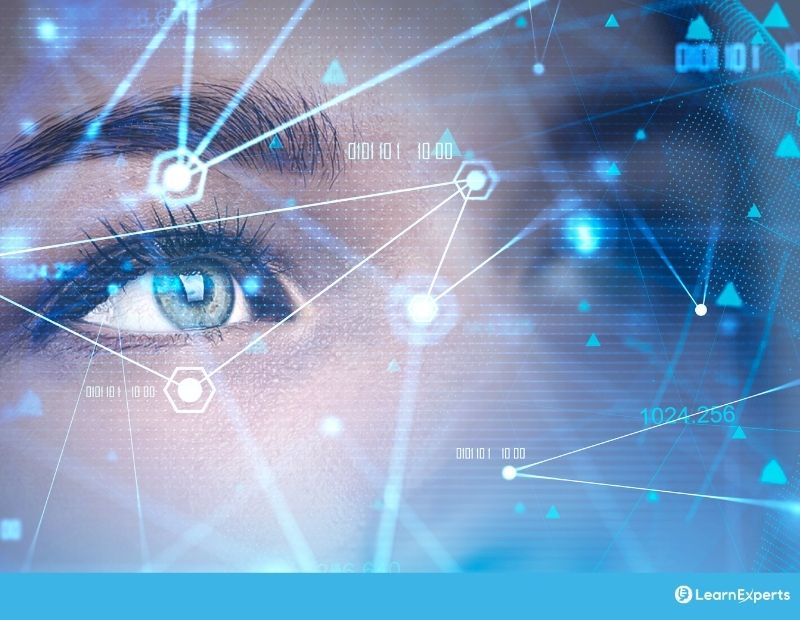Artificial Intelligence (AI) tools for HR are transforming human resource departments. According to the SHRM State of the Workplace Study 2023-2024, a quarter of HR departments use AI today; 15 percent plan to adopt it in 2024, and another 11 percent plan to adopt it in 2024.
How are HR teams using AI? The applications are many, and here is the adoption rate for AI in various HR functions:
- Talent acquisition: 42%
- Employee training and development: 36%
- People analytics: 21%
- Employee wellness benefits/activities: 18%
- Leadership development: 16%
- New employee orientation: 16%
- Organizational culture change/shaping: 15%
- IE&D (Inclusion, Equity, and Diversity): 9%
- Employee listening: 6%
The rise in AI adoption is largely attributed to its time-saving benefits, as highlighted in KPMG’s recent survey of 2,183 Canadian workers conducted. Here’s how much time respondents reported saving per week with AI:
- Less than 1 hour: 23%
- 1-2 hours: 29%
- 3-5 hours: 28%
- 6-9 hours: 11%
- 10 or more hours: 5%
By automating routine tasks, providing data-driven insights, and personalizing employee experiences, AI enables HR teams to make more informed decisions, streamline processes, and foster a more productive and engaged workforce. Here are a few AI tools for HR teams that every organization should consider adding to their tech stack to stay ahead in the competitive talent landscape.
AI talent management and recruiting
AI-powered talent management and recruitment tools can analyze resumes and job applications and match candidates with job requirements more effectively. Many also offer AI-powered chatbots and virtual assistants to reduce the effort to engage with potential candidates by answering frequently asked questions and scheduling interviews. Here are a few tools to help support your recruitment tasks:
- AmazingHiring aggregates the professional backgrounds of technical candidates from 70 different sources and uses AI to sort candidates and align them with your candidate criteria.
Checkr uses AI and ML to quickly sort and analyse data for background checks.
- Eightfold uses AI for precise candidate matching to your jobs based on skills, experience, and potential. It identifies the skills of job applicants with a detailed mapping of competencies, including identifying validated, likely, and missing skills. Also includes an interview scheduler.
- Fetcher is an AI-powered recruiting software solution for hiring tasks such as candidate sourcing, outreach, and engagement. Also offers personalized email sequences and a dashboard to track hiring metrics.
- Findem identifies ideal candidate matches for open roles and bulk shortlist the matches so recruiters can browse candidate profiles or begin automatic outreach.
- hireEZ is focused on outbound recruiting by offering an AI-powered candidate recommendation tool that reports every day via email the best candidates the tool has identified.
- iSmartRecruit uses AI to search for and match candidates to job openings based on skills, experience, and cultural fit, as well as, job matching, resume parsing, job description parsing, chatbots and more.
- HireVue is an AI-driven recruiting platform that screens candidates, guides them to relevant job openings, schedules interviews, and coordinates with candidates. It also offers video interviewing, assessments, scheduling, and text message recruiting.
- Humanly offers an AI-powered chatbot for candidate screening, interview scheduling, reference checking, and re-engagement processes.
- Manatal is an applicant tracking system (ATS) that uses artificial intelligence for candidate filtering and recommendations.
- Paradox is a conversational recruiting software that uses AI to answer candidates’ questions and keep them engaged. It also automates interview scheduling, reminders, and rescheduling.
- Phenom helps to scan resumes and profiles to quickly qualify talent based on skills, experience, and location with an AI-generated fit score. It also automates tasks like candidate sourcing, scoring, screening, and scheduling.
- Pymetrics move away from using standard resumes and moves towards gamification to assess soft skills.
- Textio is an AI-powered recruitment marketing content tool to help users steer clear of biases around age, ability, and gender in their employer brand content.
- TurboHire is an end-to-end hiring platform that enables large global enterprises to handle any hiring scenario by leveraging its advanced screening AI and cutting-edge AI agents to transform the hiring experiences of all the stakeholders involved in the process.
- Workable uses AI for automated candidate screening and the ability to predict candidate performance by analyzing resumes and qualifications.
AI workforce planning and workforce management
AI tools for HR include workforce planning and workforce management tools that can analyze historical data, including employee turnover rates, performance evaluations and workforce demographics, to identify patterns and trends so HR teams can make informed decisions about staffing needs. It can also be used to predict future workforce demands based on company growth projections, seasonal variations, and industry trends. Here are some tools to help HR proactively plan for talent acquisition:
- Plannam uses AI for shift planning to avoid overlaps in shift changes.
- Quinyx uses AI to identify peak and dull times down to 15-minute periods, deliver accurate business activity forecasts, report on optimal labour hours and the number of employees needed in each role to meet demand.
- UKG offers AI-enabled time and attendance, shift scheduling and compliance features for workforce management.
AI performance reviews
AI helps HR teams with performance reviews by gathering and consolidating data from various sources, to provide a comprehensive view of an employee’s performance. It can also help employees and managers to create performance reviews. Here are some AI-enabled performance management tools that can be used in combination with human intelligence.
- Effy sets up questionnaires for manager, peer, self-assessment and upward review and uses AI for analytics and review summaries based on responses.
- Lattice provides templates, workflows, and dashboards to let HR teams to design, launch, and streamline their performance review process. It also gives employees and managers tools to write more holistic and accurate reviews.
- Leapsome speeds the creation of objectives, key results (OKRs) and development goals by using AI.
- ManageBetter’s AI-powered platform offers a feedback library, a performance review generator, and a project achievement tracker.
- Peoplebox is a talent management platform designed to enhance various HR functions and offers capabilities like skills-gap analysis.
AI employee engagement and retention
AI can monitor employee sentiment through surveys, chat interactions, and social media to gauge employee satisfaction and engagement levels.
Like in recruiting, chatbots and virtual assistants can keep employees engaged, provide quick answers to HR-related queries and improve the overall employee experience. These capabilities are often delivered through an integrated HR AI platform that combines engagement, analytics, and retention insights in one place.
Finally, AI can analyze employee data to identify factors that contribute to turnover and predict potential attrition risks. Here are a few AI tools to help HR enhance employee engagement and retention.
- Empuls uses an AI-powered employee engagement bot to interact with employees to encourage participation, such as welcoming new employees, sending birthday wishes and completing surveys.
- HR Signal predicts how likely an employee will seek a new position and recommends a proactive retention plan.
- Motivosity uses artificial intelligence to create community, manager development, recognition and rewards and employee insights.
- Qualtrics analyzes behaviour data to identify teams with a high risk of attrition and identify the most likely reasons employees might leave.
- Visier uses AI to support analytics for tasks like time forecasting, building career journeys, identifying employees at risk of leaving or should be promoted and retirement estimation.
- Zavvy uses AI to develop career training plans and career paths. It also offers competency-based feedback reviews, automated development plans based on feedback results and skill gap analyses.
AI training and development
AI enhances training and development by assessing individual employees’ knowledge and skills through pre-assessments or ongoing performance data and recommends personalized learning materials, courses, or modules to address specific skill gaps and learning needs. AI can also help develop personalized training materials that are tailored to your company’s needs. Here are some examples of training and development tools with AI that are designed to support HR teams:
- Absorb LMS is a learning management systems that uses AI to help admins to manage day-to-day tasks and use learner data to predict new content that will likely interest them.
- Alelo allows employees to engage in conversations with avatars, and the AI generates personalized instruction on how to better engage with clients.
- Quantified.ai is a role-playing and coaching tool that uses AI to create realistic, conversational avatars to train sales and sales enablement teams on messaging, product, and market.
- LearnExperts uses AI to build content for presentations, eLearning courses, and microlearning for onboarding, compliance and training programs. Also provides learning paths.
- Outplay uses AI-enabled conversational intelligence to coach reps and provide them with real-time resources to handle objections.
- Second Nature AI uses AI to have discussions with sales reps, offers personalized feedback and guidance, and scores their interactions.
- Skilljar is another LMS that uses AI to deliver a personalized learning experience for each learner.
- Talentcards is an AI-enabled platform that generates microlearning courses with text and images by typing in the training topic.
- Totara uses AI to identify users’ key interests, skills and information and create learning pathways.
Using LEAi for HR
LEAi by LearnExperts uses AI to allow companies to rapidly create comprehensive training programs designed to skill, upskill, and reskill their teams.
With LEAi, you can effortlessly transform your existing Word documents, PDFs, and PowerPoint presentations into various formats, including eLearning courses, microlearning modules, video scripts, and interactive presentations. This flexibility allows you to cater to different learning preferences and ensure that your employee onboarding and training programs are engaging, effective, and up-to-date.
LEAi offers a suite of powerful features designed to streamline and enhance your training program development:
- Automated content conversion: Quickly transform existing Word documents, PDFs, webinar recordings, and PowerPoint presentations into various formats, including eLearning courses, microlearning modules, video scripts, and interactive presentations.
- AI-powered content structuring: LEAi intelligently organizes and structures content, making creating cohesive and logical learning paths tailored to your team’s needs easier.
- Interactive assessments: Create quizzes, simulations, and other interactive elements that engage learners and reinforce key concepts.
- Seamless integration: LEAi integrates smoothly with your existing Learning Management System (LMS), ensuring a hassle-free implementation and consistent user experience.
- Scalable content creation: Whether you’re developing training for a small team or an entire organization, LEAi scales with your needs, enabling rapid deployment across multiple departments.
- Collaboration tools: Facilitate teamwork and input from multiple stakeholders with collaborative features that allow for easy content review and approval processes.
Contact us to discover how LEAi can streamline content creation and elevate your workforce development initiatives.




